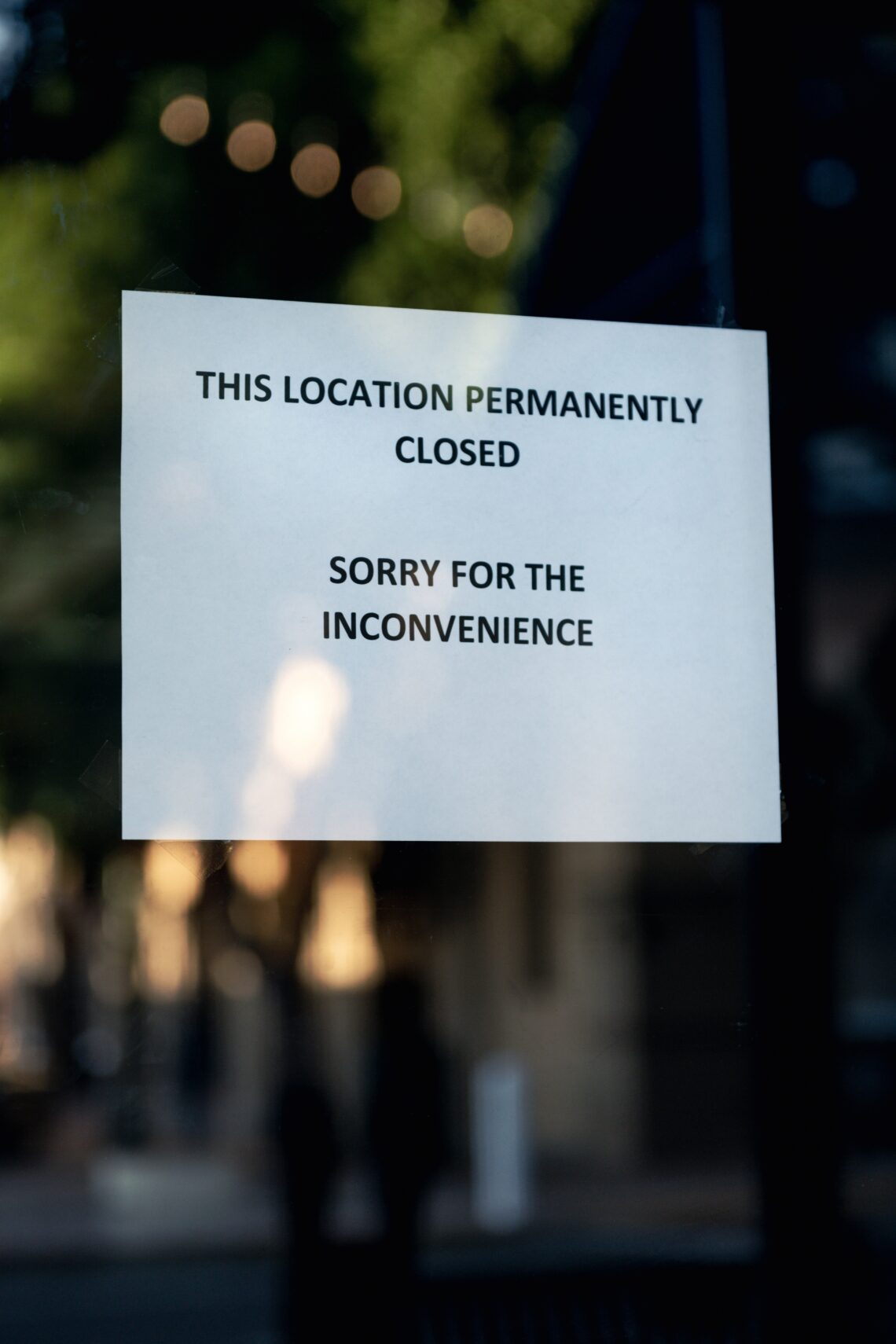
Risky business
Operating a successful business is a dream for many young Ontarians. However, it’s also not an easy feat.
Businesses need consistent support at a time when inflation in Canada likely won’t stabilize until 2024. Many businesses are also still feeling the damages from COVID-19 lockdowns.
Keeping the doors open and the lights on can be difficult. Knowing this, business owners and their employees are stressing the importance of showing gratitude for local businesses.
Business closures
Robin Dickie offers mobile-registered massage therapy services in Toronto’s east end. As the owner of a customer-facing operation, she understands what types of businesses are most likely to close.
“I think restaurants close most often. Gyms and spas are a close second,” she says.
Tim Cuff, a former Toronto-based chef at La Banane, agrees with Dickie.
“Service occupations generally, like salons, restaurants and bars, are where I see the most closures,” he says.
COVID-19, inflation and other factors
The question remains: why do closures often threaten customer-facing industries? For some, the reason is clear.
“Inflation keeps dousing the restaurant industry. Customers also don’t appreciate having the rising costs passed onto them,” Cuff says.
Food service establishments closed repeatedly during the COVID-19 pandemic. Even when they were open, lockdown rules interfered with operations.
Brelene Laskoski opened her bakery, Made by Brelene, a few years ago. Catching up after the COVID-19 pandemic has been a continuous battle for her.
“For my business, restrictions on gathering sizes were difficult. Your 30-person party turned into 10, which made for a smaller order, equalling less money,” Laskoski says.
Profit decline leaves owners no choice but to make necessary adjustments.
“I’ve had to raise my prices since everything is a little more expensive. But I find some people aren’t as willing to spend the $100 on a fancy cake,” Laskoski says.
Brand-new restaurants may also have less chance of survival than their competitors.
“Newer businesses, I think, are often the most susceptible to big changes in operating cost or public opinion,” Cuff says.
It’s not just the food service industry. Societal trends can also negatively impact local shops.
For example, the frequency of online shopping increased during the COVID-19 lockdowns. Nowadays, many people struggle to let go of this convenience.
“Unfortunately, I think we’re extinguishing small and medium-sized businesses. Soon, Amazon will be one of the only places you can order things,” Dickie says.
Creating a cycle of gratitude
Business owners and their customers share something in common: consumerism.
They both rely on goods and services—but owners are the ones who understand the fear of closure.
Since owners also support the economy, they can help promote the importance of showing gratitude for local businesses. The goal is to help communities succeed, despite threats like inflation.
There are many ways people show gratitude for their favourite establishments. One is using the simple technique of word-of-mouth.
“I think sharing is the best way to show appreciation. Sharing a photo on social media or even just telling your friends that you liked the product is helpful,” says Laskoski.
Kindness can also make the lives of business owners easier, helping them in their success and profits.
Consideration often comes from the sense of camaraderie owners have, even if they aren’t in the same industries.
“Every restaurant I go into is overwhelmed. I am very patient and understanding with them,” Dickie says.
After spending years in the restaurant industry, Cuff agrees with this type of appreciation.
“I give places a second chance. This is something I don’t feel that many people do. I don’t expect perfection all the time,” he says.
An obvious way to show gratitude is by spending money on local products and services. Customers can also go the extra mile by leaving complimentary feedback.
“I use review sites and platforms for good reviews only. I don’t always think bad reviews are fair,” Cuff says.
Large corporations and local establishments live in two different financial worlds. The former can easily accumulate wealth, while the latter is more likely to struggle to stay afloat. Small business owners are sometimes more aware of this reality than customers.
As a young business owner, Laskoski hopes that Ontario’s youth create a future of vibrant and unique businesses.
“I’d much rather support a small local business than a multi-million dollar company,” she says.
About the author
Brittany is a reporter for Youth Mind. When she isn’t working hard to become a full-time writer, she can be found making a dinner reservation, rewatching her favourite movies, or reading about True Crime.







